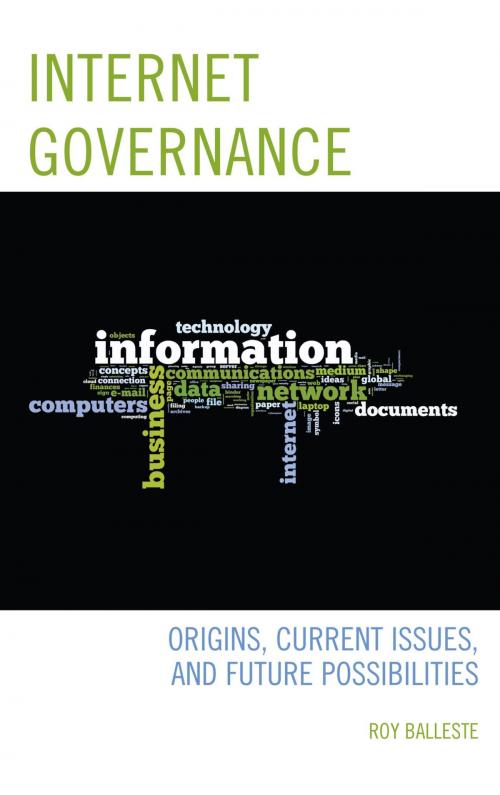Internet Governance
Origins, Current Issues, and Future Possibilities
Nonfiction, Reference & Language, Law, Science & Technology, Science & Nature, Technology, Telecommunications, Computers, Internet| Author: | Roy Balleste | ISBN: | 9781442247857 |
| Publisher: | Rowman & Littlefield Publishers | Publication: | March 6, 2015 |
| Imprint: | Rowman & Littlefield Publishers | Language: | English |
| Author: | Roy Balleste |
| ISBN: | 9781442247857 |
| Publisher: | Rowman & Littlefield Publishers |
| Publication: | March 6, 2015 |
| Imprint: | Rowman & Littlefield Publishers |
| Language: | English |
Internet Governance: Origins, Current Issues, and Future Possibilities deals with Internet governance and includes computer history, Internet beginnings, institutions and stakeholders, proposed models of governance, and human rights. The concept of Internet governance covers an exceptionally complex and rapidly changing field of norms and rules. Its origins and conflicts engage many disciplines and give rise to technical standards with contributions from a wide range of stakeholders. At the same time, the Internet has increasingly become the dominant reality for all the information processing industries. The ultimate goal of the book is to establish a foundation for identifying a new model of governance for the Internet. In doing so, the book honors the efforts of previous scholars who have considered and proposed other models for the governance of the Internet.
Among its aims, the book is intended as an introduction for the novice to the subject of internet governance. The first two chapters offer a historical foundation of the institutions and the debate. The next two chapters discuss the evolution of that debate over the last twenty years. The final two discuss the present and future ramifications of the debate and include the author’s attempts to sketch a practical plan for a new concept of Internet governance.
This book provides an introductory, multidisciplinary account of the forces at work in the evolving concept of internet governance for scholars in the information studies fields, including computer, information and library science. It should also be useful for scholars in the fields of international law, international relations, diplomacy studies and political science.
Internet Governance: Origins, Current Issues, and Future Possibilities deals with Internet governance and includes computer history, Internet beginnings, institutions and stakeholders, proposed models of governance, and human rights. The concept of Internet governance covers an exceptionally complex and rapidly changing field of norms and rules. Its origins and conflicts engage many disciplines and give rise to technical standards with contributions from a wide range of stakeholders. At the same time, the Internet has increasingly become the dominant reality for all the information processing industries. The ultimate goal of the book is to establish a foundation for identifying a new model of governance for the Internet. In doing so, the book honors the efforts of previous scholars who have considered and proposed other models for the governance of the Internet.
Among its aims, the book is intended as an introduction for the novice to the subject of internet governance. The first two chapters offer a historical foundation of the institutions and the debate. The next two chapters discuss the evolution of that debate over the last twenty years. The final two discuss the present and future ramifications of the debate and include the author’s attempts to sketch a practical plan for a new concept of Internet governance.
This book provides an introductory, multidisciplinary account of the forces at work in the evolving concept of internet governance for scholars in the information studies fields, including computer, information and library science. It should also be useful for scholars in the fields of international law, international relations, diplomacy studies and political science.















